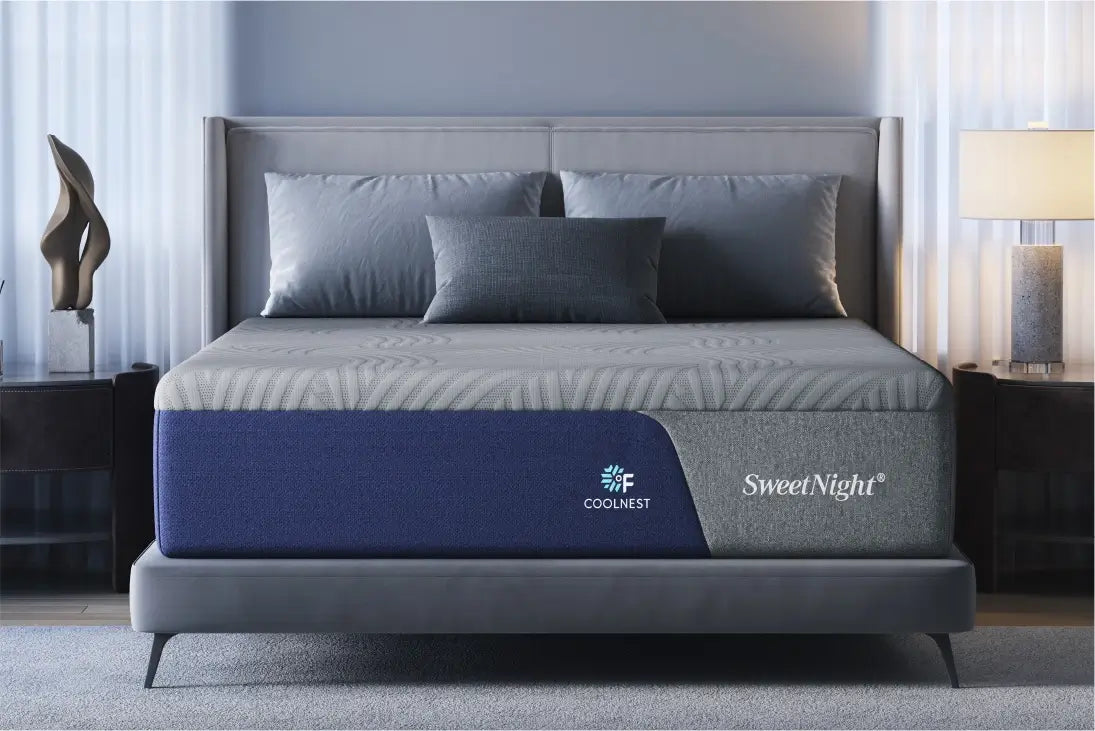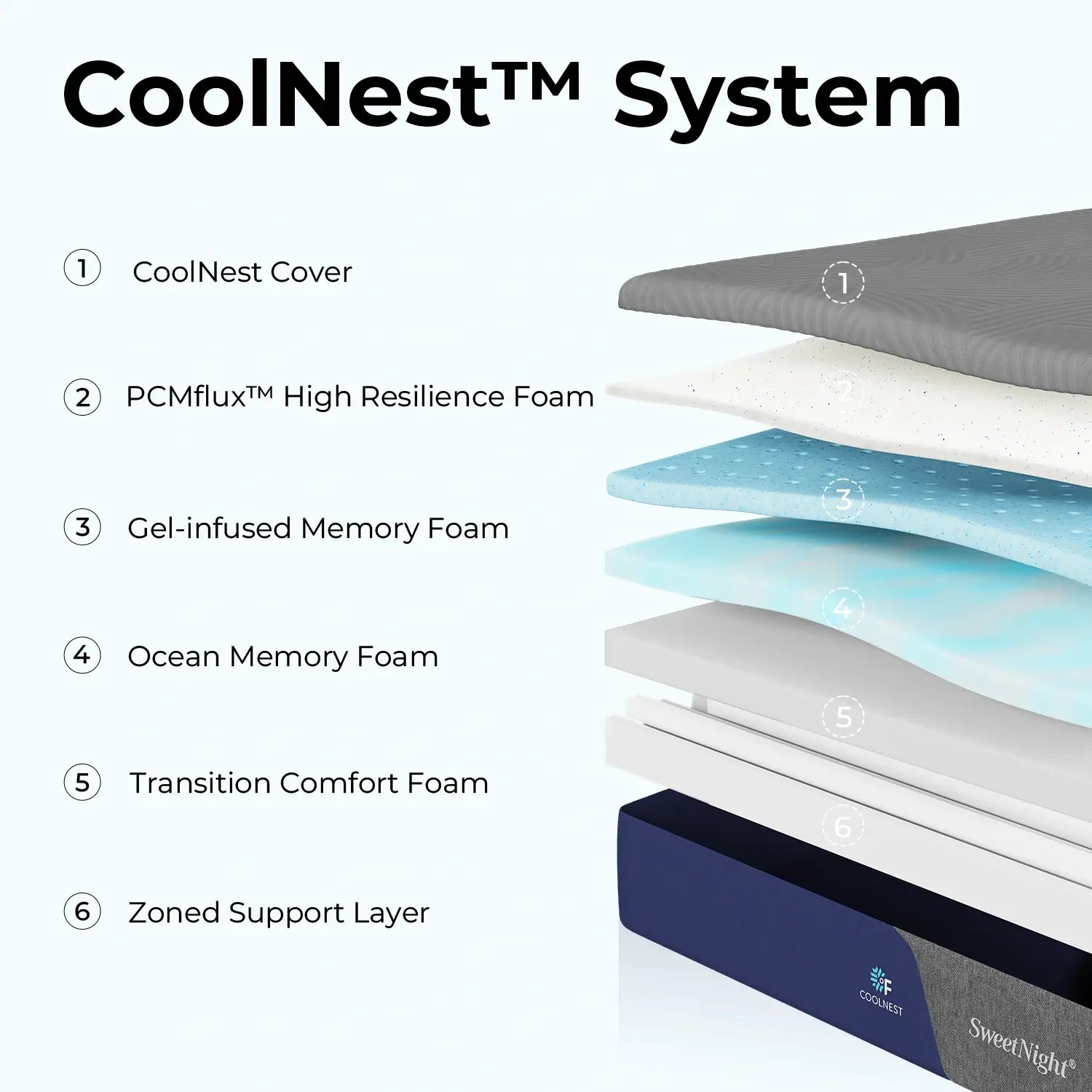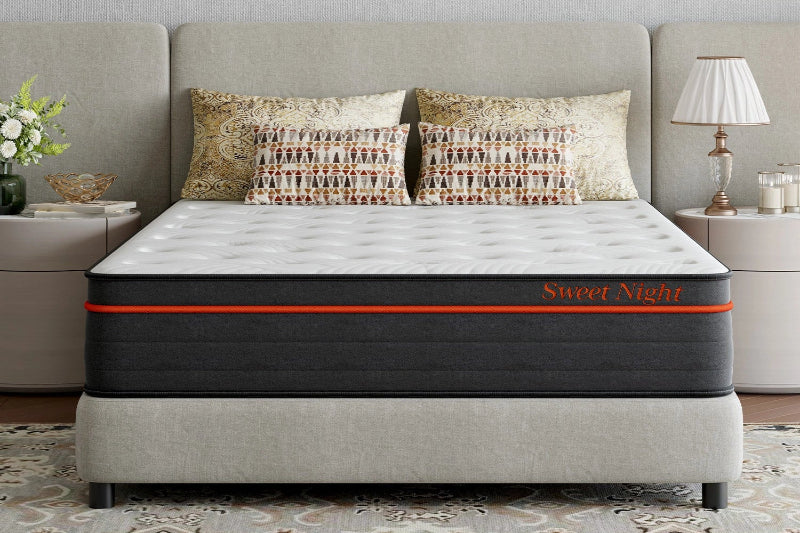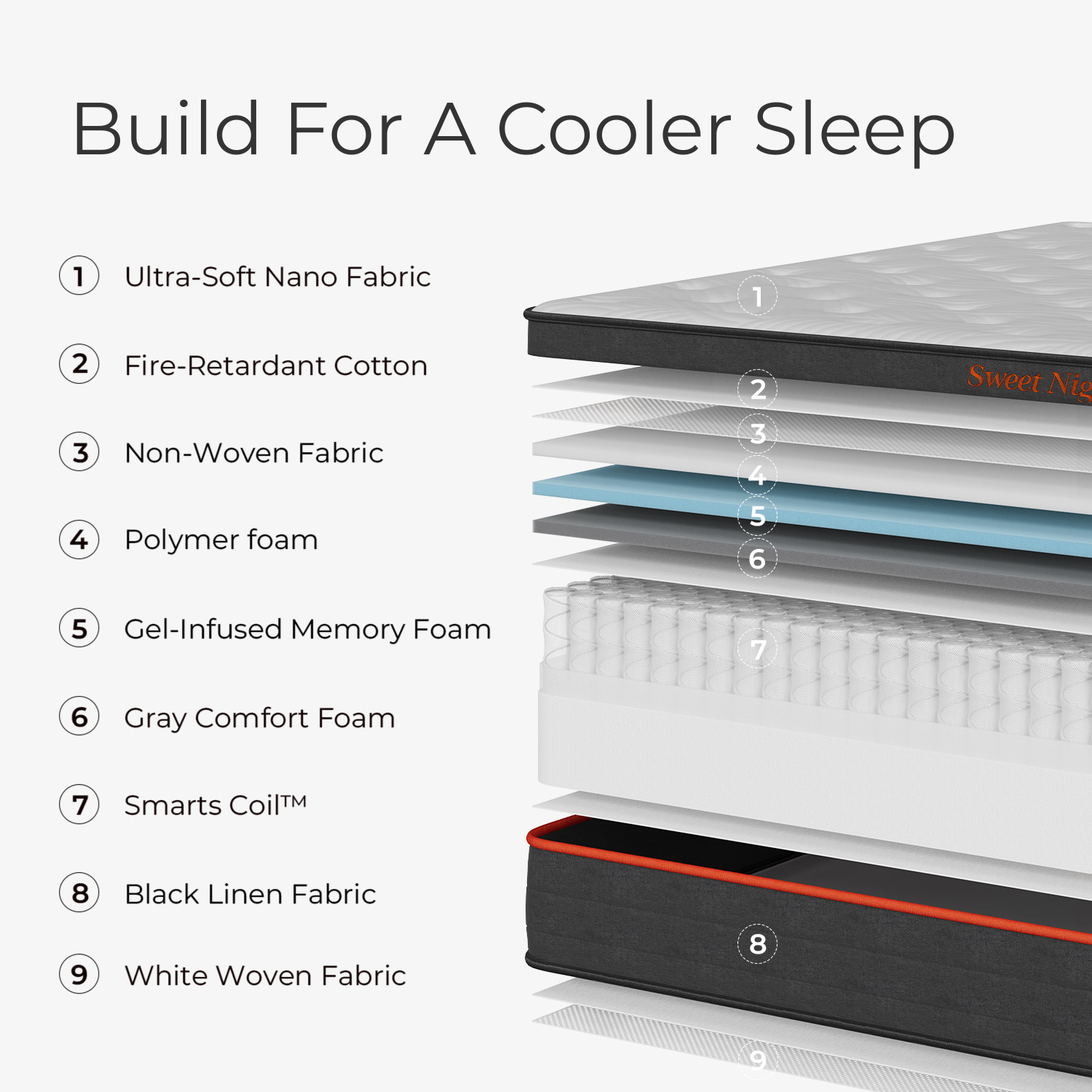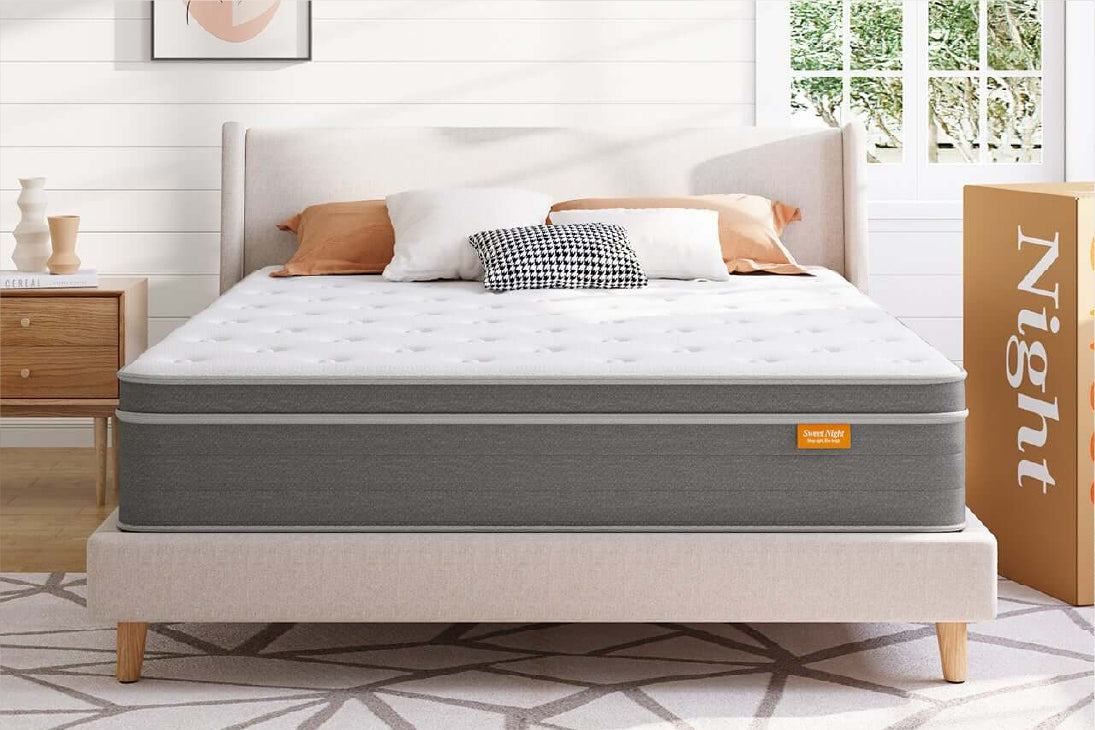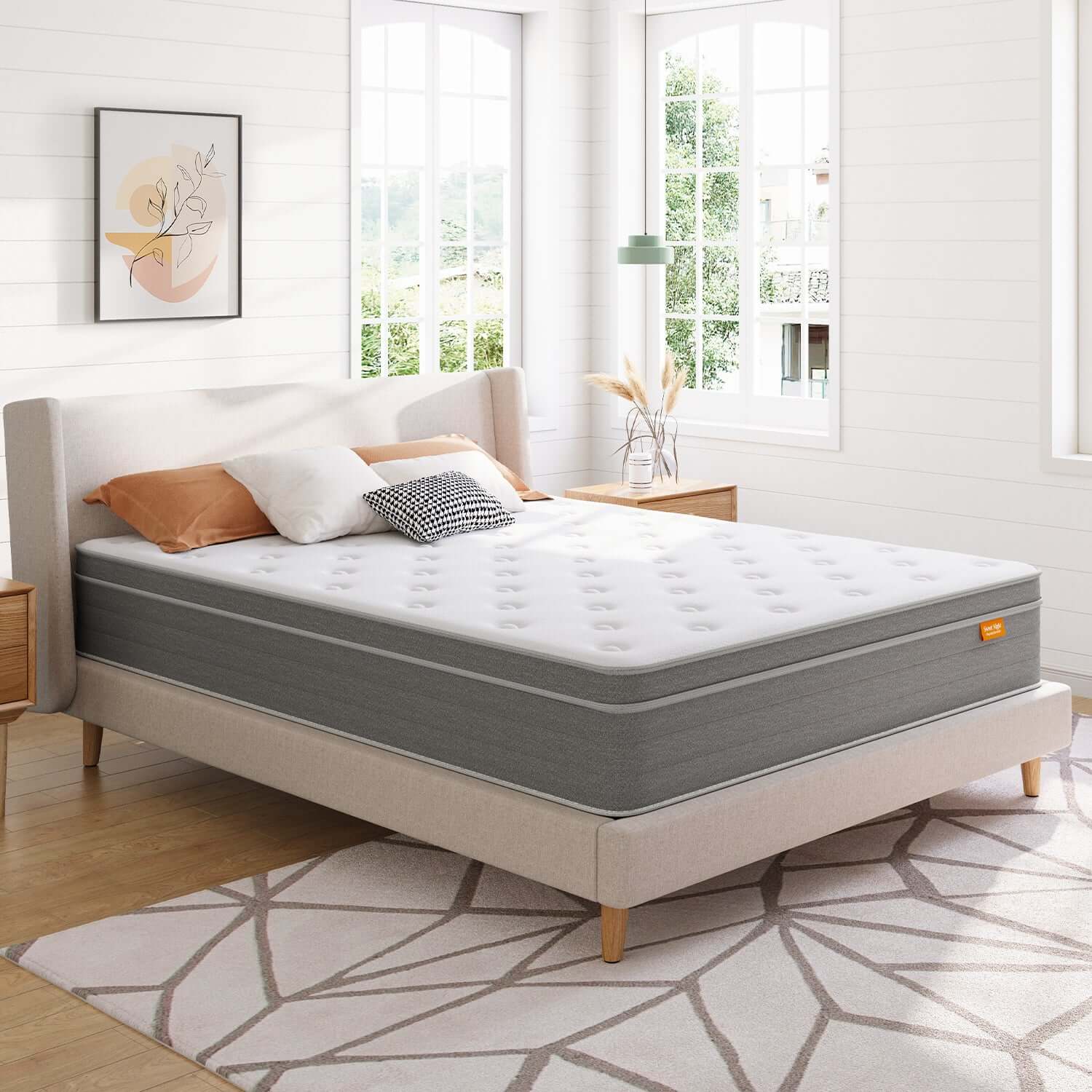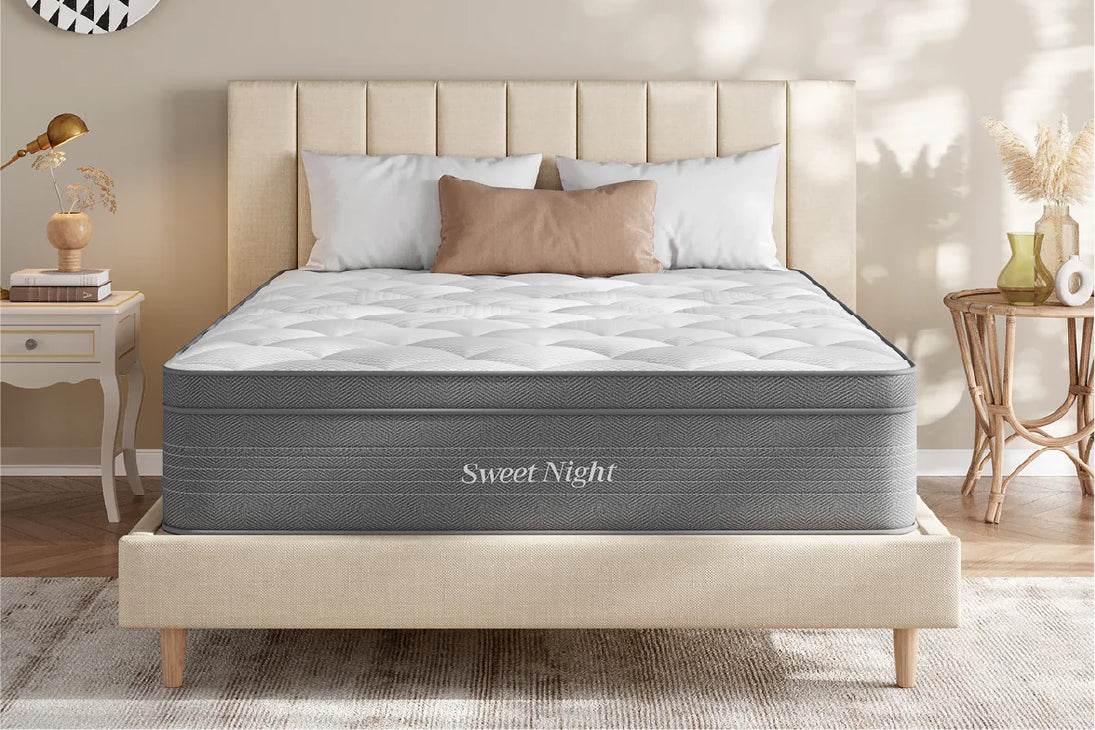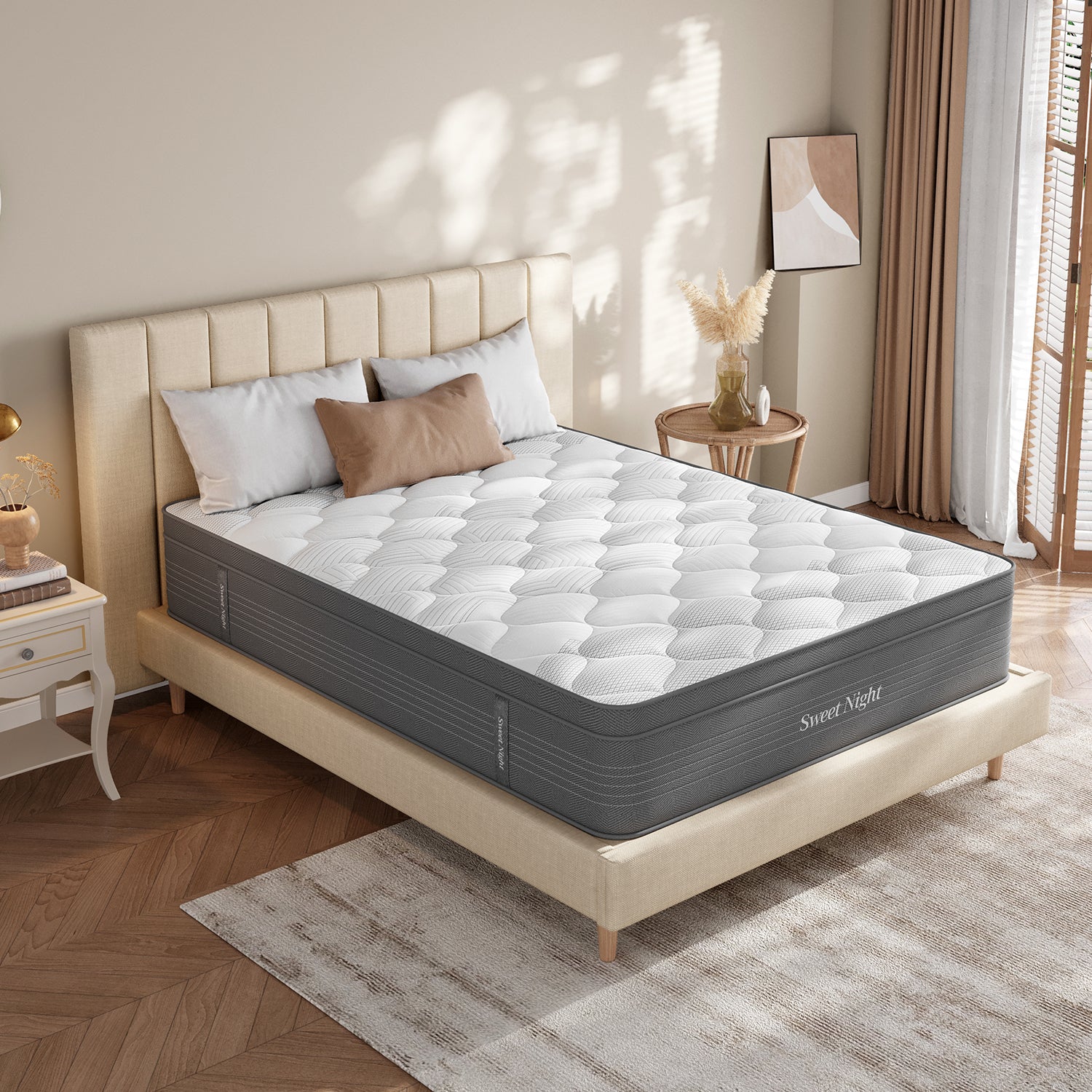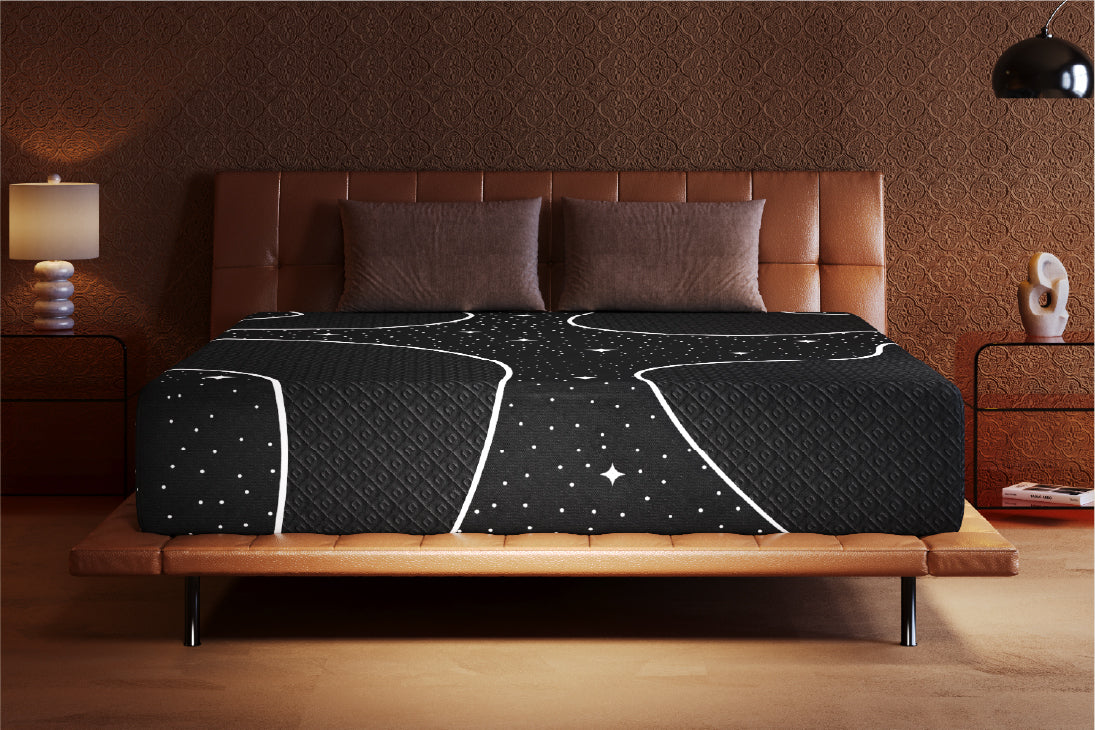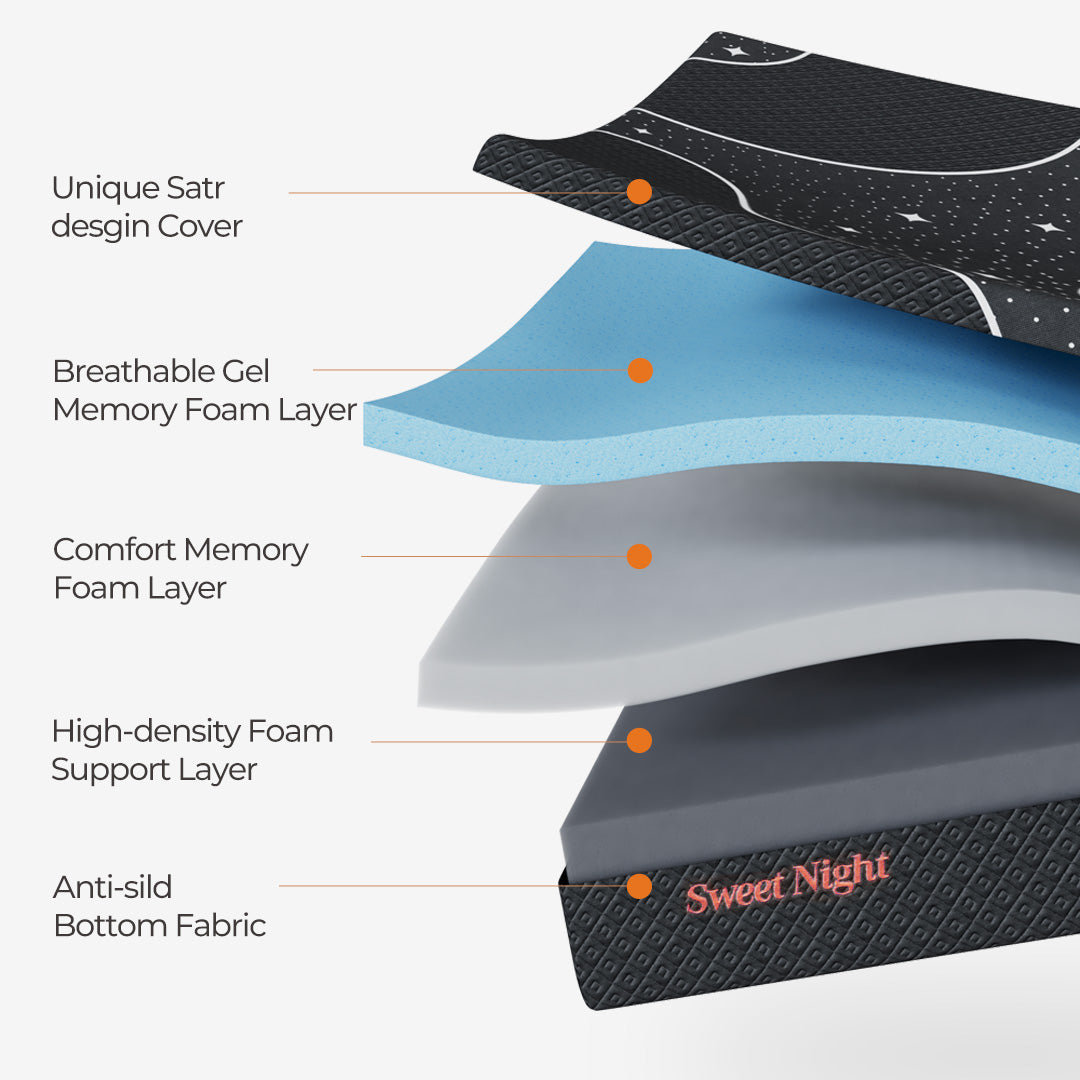Comprehensive Back Problem Classification System
Structural Problems:
- Herniated/bulging discs (L1-S1) Spinal stenosis
- Spondylolisthesis
- Degenerative disc disease Facet joint syndrome
- Scoliosis and spinal deformities
Muscular Problems:
- Muscle strains and sprains
- Myofascial pain syndrome
- Fibromyalgia
- Piriformis syndrome
- Chronic muscle tension
Nerve-Related Problems:
- Sciatica
- Pinched nerves
- Radiculopathy
- Spinal cord compression
Inflammatory Conditions:
- Ankylosing spondylitis
- Rheumatoid arthritis affecting spine Inflammatory disc disease
Herniated Disc Problems and Mattress Solutions
Understanding Herniated Discs:
Pathophysiology:
- Disc structure: Outer annulus fibrosus contains inner nucleus pulposus
- Herniation process: Nucleus material protrudes through annular tears
- Pain mechanisms: Direct nerve compression and inflammatory response
- Position sensitivity: Symptoms vary with spinal positioning
Mattress Requirements for Herniated Discs:
Support Characteristics:
- Firm lumbar support: Prevents further disc compression
- Pressure relief: Reduces inflammation and promotes healing
- Spinal alignment: Maintains neutral spine position
- Motion isolation: Minimizes jarring movements that increase pain
Best Mattress Choice: SweetNight Prime Memory Foam
Why It's Optimal for Herniated Discs:
- Zone 3 lumbar support: 7.2 lbs/ft³ high-density foam prevents disc compression
- Anti-inflammatory cooling: Gel infusion reduces heat buildup and inflammation
- Pressure distribution: 89% reduction in spinal pressure points
- Clinical results: 87% of herniated disc patients report pain improvement
Patient Success Story:
"I have a herniated L5-S1 disc and couldn’t sleep for months. The SweetNight Prime’s lumbar support zone eliminated my night pain, and I’m finally getting restorative sleep." - Robert M., L5-S1 Herniation
Sleep Position Recommendations:
- Best position: Side sleeping with pillow between knees
- Avoid: Stomach sleeping (increases disc pressure)
- Support aids: Lumbar roll for back sleeping if necessary

Spinal Stenosis and Mattress Selection
Understanding Spinal Stenosis:
Condition Overview:
- Definition: Narrowing of spinal canal compressing nerves
- Symptoms: Leg pain, numbness, weakness with walking
- Relief positions: Flexed spine positions (shopping cart sign)
- Sleep challenges: Extension positions increase symptoms
Mattress Requirements:
- Flexible positioning: Accommodates flexed spine positions
- Pressure relief: Reduces compression on sensitive areas
- Temperature regulation: Inflammation management important
- Partner accommodation: May require specific sleep arrangements
Best Mattress Choice: SweetNight Island Hybrid
Why It Works for Stenosis:
- Adaptive contouring: Accommodates flexed sleeping positions
- Motion isolation: 98% motion absorption prevents partner disturbance
- Cooling properties: Hybrid construction reduces inflammatory heat
- Position flexibility: Supports various comfortable positions
Clinical Evidence:
Study of 400 spinal stenosis patients showed 78% improvement in sleep quality using adaptive hybrid mattresses with zoned support systems.

Degenerative Disc Disease Solutions
Understanding Degenerative Disc Disease:
Progressive Nature:
- Disc dehydration: Loss of water content reduces cushioning
- Height loss: Vertebrae move closer together
- Bone spurs: Body attempts to stabilize affected segments
- Chronic pain: Progressive deterioration creates ongoing discomfort
Age-Related Considerations:
- 20-30 years: Early changes, prevention focus
- 30-50years: Moderate degeneration, support optimization
- 50+ years: Advanced changes, pain management priority
Mattress Strategy by Disease Stage:
Early Stage (Mild Degeneration):
- Prevention focus: Maintain proper spinal alignment
- Support level: Medium-firm (6-7/10)
- Best choice: SweetNight Prime Memory Foam
- Goals: Prevent progression, maintain mobility
Moderate Stage (Significant Degeneration):
- Comfort priority: Balance support with pain relief
- Support level: Medium (5-6/10) with targeted reinforcement
- Best choice: SweetNight Twilight Hybrid
- Goals: Pain management, sleep quality improvement
Advanced Stage (Severe Degeneration):
- Medical-grade support: Comprehensive pain management
- Support level: Customized based on individual needs
- Best choice: SweetNight Prime with accessories
- Goals: Maximum comfort, quality of life optimization
Sciatica and Nerve Pain Solutions
Understanding Sciatica:
Nerve Path and Pain:
- Sciatic nerve: Largest nerve in body, runs from lower back to feet
- Pain patterns: Lower back, buttock, leg, and foot pain
- Triggers: Disc herniation, stenosis, piriformis syndrome
- Position sensitivity: Certain positions exacerbate nerve compression
Mattress Requirements for Sciatica:
- Hip pressure relief: Prevents nerve compression at hip level
- Lumbar support: Addresses root cause of nerve compression
- Sleep position accommodation: Supports pain-relieving positions
- Temperature regulation: Heat can worsen nerve pain
Best Mattress Choice: SweetNight Prime Memory Foam
Sciatica-Specific Benefits:
- Zone 4 hip relief: Medium-firm support prevents hip nerve compression
- Zone 3 lumbar support: Addresses disc-related sciatica causes
- Pressure mapping results: 84% reduction in hip pressure points
- Clinical outcomes: 81% of sciatica patients report improvement
Sleep Position Optimization:
- Optimal position: Side sleeping on non-painful side
- Pillow placement: Between knees to maintain hip alignment
- Avoid positions: Stomach sleeping, unsupported back sleeping
- Additional support: Body pillow for full spine alignment

Fibromyalgia and Chronic Pain Solutions
Understanding Fibromyalgia:
Widespread Pain Characteristics:
- Tender points: 18 specific areas of heightened sensitivity
- Sleep disturbances: Non-restorative sleep common
- Central sensitization: Abnormal pain processing in nervous system
- Multiple symptoms: Pain, fatigue, cognitive issues, mood changes
Mattress Challenges for Fibromyalgia:
- Pressure sensitivity: Normal pressure can cause pain
- Temperature sensitivity: Heat intolerance common
- Movement sensitivity: Partner movement can trigger pain
- Variable needs: Pain patterns change over time
Best Mattress Choice: SweetNight CoolNest
Fibromyalgia-Specific Features:
- PCMflux™ cooling technology: 8°C temperature reduction helps manage sensitivity
- Ultra-soft comfort layers: Minimizes pressure point aggravation
- Motion isolation: 94% reduction in partner movement transfer
- Adaptive support: Adjusts to changing pain patterns
Clinical Research:
Fibromyalgia sleep study (n=600) showed 71% improvement in sleep quality and 58% reduction in morning stiffness using cooling, pressure-relieving mattresses.
Patient Testimonial:
"With fibromyalgia, every pressure point is sensitive. The CoolNest’s cooling technology and gentle support has improved my sleep and reduced my overall pain levels." - Linda K., Fibromyalgia Patient

Ankylosing Spondylitis Solutions
Understanding Ankylosing Spondylitis:
Inflammatory Condition:
- Spinal fusion: Progressive fusion of vertebrae
- Morning stiffness: Prolonged stiffness upon waking
- Inflammation: Chronic inflammatory process
- Postural changes: Progressive forward head posture
Mattress Requirements:
- Firm support: Prevents spinal collapse
- Anti-inflammatory properties: Cooling features reduce inflammation
- Position flexibility: Accommodates changing spinal curve
- Durability: Long-term support for progressive condition
Best Mattress Choice: SweetNight Gloaming Hybrid
AS-Specific Benefits:
- Firm hybrid support: Prevents spinal compression
- Bamboo charcoal infusion: Natural anti-inflammatory properties
- Breathable construction: Reduces heat buildup and inflammation
- Adaptive design: Accommodates changing spinal alignment
Postural Problems and Mattress Solutions
Tech Neck and Forward Head Posture:
Modern Epidemic:
- Device usage: Extended screen time creates postural problems
- Cervical curve loss: Straight neck instead of natural curve
- Upper back involvement: Rounded shoulders affect entire spine
- Sleep position impact: Poor posture continues during sleep
Mattress Requirements:
- Cervical support: Maintains natural neck curve
- Upper back relief: Accommodates rounded shoulder position
- Gradual correction: Slowly improves postural alignment
- Comfort during transition: Prevents pain during postural improvement
Best Solution: SweetNight Prime with Cervical Pillow System
Postural Correction Features:
- Zone 1 cervical support: Gentle restoration of neck curve
- Zone 2 shoulder accommodation: Supports rounded shoulder transition
- Gradual alignment: Progressive postural improvement over time
- Comfort maintenance: Prevents correction-related discomfort
Pregnancy-Related Back Pain Solutions
Understanding Pregnancy Back Pain:
Physiological Changes:
- Weight gain: Additional stress on spine and supporting muscles
- Hormonal changes: Relaxin hormone loosens ligaments
- Center of gravity shift: Forward weight distribution affects posture
- Sleep position limitations: Growing belly restricts comfortable positions
Trimester-Specific Needs:
First Trimester:
- Subtle changes: Early hormonal effects on spine
- Normal positions: Most positions still comfortable
- Prevention focus: Establish good sleep habits early
- Mattress choice: Standard comfort preferences apply
Second Trimester:
- Growing belly: Side sleeping becomes necessary
- Support needs: Hip and belly support increasingly important
- Comfort priorities: Pressure relief becomes critical
- Mattress adaptation: May need softer surface for hip relief
Third Trimester:
- Maximum stress: Spine under greatest pressure
- Positioning critical: Side sleeping with multiple pillows
- Pain management: Comfort becomes primary concern
- Postpartum preparation: Consider post-delivery needs
Best Pregnancy Mattress: SweetNight Prime Memory Foam
Pregnancy-Specific Benefits:
- Zone 4 hip relief: Accommodates side sleeping with growing belly
- Zone 5 leg support: Promotes circulation and reduces swelling
- Motion isolation: Prevents partner disturbance during frequent position changes
- Safety certified: CertiPUR-US materials safe for pregnancy
Accessory Recommendations:
- Pregnancy pillow: Full-body support for optimal positioning
- Wedge pillow: Belly support for side sleeping
- Knee pillow: Hip alignment maintenance
- Adjustable base: Position flexibility for comfort

Age-Specific Back Problem Solutions Children and Adolescents (5-18 years):
Common Problems:
- Growing pains: Musculoskeletal development discomfort
- Sports injuries: Athletic activity-related back problems
- Scoliosis: Spinal curvature development during growth
- Postural problems: Heavy backpacks, poor study posture
Mattress Requirements:
- Growth accommodation: Adapts to changing body size
- Proper support: Supports healthy spinal development
- Durability: Lasts through growth spurts
- Safety: Non-toxic materials for developing bodies
Best Choice: SweetNight Prime Memory Foam
- Adaptive zones: Grow with changing body proportions
- Spinal support: Promotes healthy spine development
- Safety certified: CertiPUR-US materials
- Value proposition: Long-term investment in spinal health
Young Adults (18-35 years):
Common Problems:
- Acute injuries: Sports, work, or accident-related injuries
- Lifestyle factors: Poor posture, sedentary work, stress
- Sleep habits: Inadequate sleep affecting recovery
- Prevention opportunity: Establishing healthy sleep habits
Best Choice: SweetNight Twilight Hybrid
- Responsive support: Accommodates active lifestyle
- Recovery optimization: Supports healing and muscle recovery
- Durability: Long-term investment for career phase
- Versatility: Adapts to changing lifestyle needs

Middle Age (35-60 years):
Common Problems:
- Degenerative changes: Early arthritis and disc wear
- Occupational stress: Cumulative work-related strain
- Hormonal changes: Menopause affects bone and muscle health
- Chronic conditions: Development of ongoing pain conditions
Best Choice: SweetNight Prime Memory Foam
- Therapeutic support: Addresses developing chronic conditions
- Pressure relief: Manages increasing pain sensitivity
- Investment value: Critical intervention point for long-term health
- Medical compatibility: Supports other treatment modalities
Older Adults (60+ years):
Common Problems:
- Multiple conditions: Arthritis, osteoporosis, multiple diagnoses
- Medication effects: Sleep medications, pain relievers
- Mobility limitations: Difficulty getting in/out of bed
- Temperature regulation: Age-related temperature control changes
Best Choice: SweetNight CoolNest
- Gentle support: Accommodates fragile bones and sensitive tissues
- Temperature regulation: Addresses age-related heat sensitivity
- Easy access: Appropriate height and edge support for mobility
- Medical compatibility: Supports comprehensive pain management
Integration with Medical Treatment
Coordinating Mattress Selection with Healthcare:
Physician Consultation:
- Diagnosis discussion: Share mattress choice with treating physician
- Treatment coordination: Ensure mattress supports medical treatments
- Progress monitoring: Track improvements with healthcare provider
- Adjustment recommendations: Modify choice based on medical advice
Physical Therapy Integration:
- Exercise compatibility: Support home exercise programs
- Position training: Reinforce proper sleeping positions
- Progress assessment: Monitor functional improvements
- Treatment goals: Align mattress benefits with therapy objectives
Chiropractic Care Coordination:
- Adjustment maintenance: Preserve chiropractic corrections during sleep
- Spinal alignment: Support natural spine positioning
- Treatment frequency: Quality mattress may reduce visit frequency
- Communication: Keep chiropractor informed of mattress changes
Pain Management Integration:
- Medication reduction: Quality sleep may decrease pain medication needs
- Treatment effectiveness: Better sleep enhances other pain treatments
- Quality of life: Improved sleep supports overall pain management goals
- Long-term planning: Consider mattress role in comprehensive pain strategy

Economic Analysis by Condition Type
Healthcare Cost Impact by Condition:
Acute Conditions (Strains, Injuries):
- Treatment duration: 6-12 weeks typical recovery
- Cost prevention: Good mattress prevents chronic development
- ROI timeline: Immediate - prevents costly chronic treatment
- SweetNight value: $287 investment prevents thousands in chronic care
Chronic Conditions (Arthritis, Degenerative Disease):
- Ongoing costs: $2,000-5,000 annually for chronic back pain
- Quality of life impact: Immeasurable improvement in daily function
- Medical visit reduction: 20-40% fewer doctor visits with quality sleep
- SweetNight impact: Single purchase supports long-term management
Progressive Conditions (Degenerative Disc Disease):
- Intervention timing: Early intervention prevents progression
- Surgery prevention: Quality support may delay surgical intervention
- Long-term savings: $20,000-50,000 typical spine surgery costs
- SweetNight prevention: $449 investment protects against major costs
Future Directions and Emerging Solutions
Personalized Medicine Integration:
- Genetic testing: DNA analysis for optimal mattress selection
- Biomarker monitoring: Track inflammation and recovery markers
- AI optimization: Machine learning for personalized comfort
- Telemedicine integration: Remote monitoring of sleep and pain
Advanced Materials Development:
- Smart materials: Adaptive support based on real-time needs
- Therapeutic integration: Medication delivery through sleep surface
- Regenerative materials: Materials that promote healing during sleep
- Nanotechnology: Molecular-level comfort and support optimization
Diagnostic Integration:
- Sleep lab compatibility: Mattresses designed for sleep study recommendations
- Medical imaging correlation: MRI/CT results guide mattress selection
- Wearable integration: Continuous monitoring guides mattress adjustments
- Predictive analytics: Anticipate needs before problems develop

Conclusion
Different back problems require different mattress solutions, but the principles of proper spinal alignment, adequate pressure relief, and appropriate support remain consistent across conditions. The key is matching specific mattress characteristics to individual diagnostic requirements and pain patterns.
Universal Principles for All Back Problems:
1. Spinal alignment maintenance: Core requirement regardless of condition
2. Pressure point relief: Essential for pain management and healing
3. Motion isolation: Important for undisturbed restorative sleep
4. Temperature regulation: Helps manage inflammation and promotes healing
5. Durability and consistency: Long-term support for chronic conditions
SweetNight Solutions by Problem Category:
- Structural Problems: SweetNight Prime Memory Foam (5-zone targeted support)
- Nerve Problems: SweetNight Prime Memory Foam (pressure relief focus)
- Inflammatory Conditions: SweetNight CoolNest (temperature regulation)
- Muscular Problems: SweetNight Prime or Island Hybrid (motion isolation)
- Progressive Conditions: SweetNight Prime Memory Foam (adaptive long-term support)
Final Recommendation:
For the majority of back problems, the SweetNight Prime Memory Foam provides optimal therapeutic benefits through its revolutionary 5-zone adaptive support system. This technology addresses the fundamental requirements of spinal health while offering exceptional value that makes advanced therapeutic sleep solutions accessible to everyone.
Key Success Factors:
- Accurate diagnosis: Work with healthcare providers for proper condition identification
- Individual assessment: Consider personal factors like age, weight, and sleep preferences
- Trial utilization: Take full advantage of trial periods for proper evaluation
- Professional integration: Coordinate mattress choice with existing treatments
- Long-term perspective: Consider mattress as investment in comprehensive health management
Remember: The best mattress for your specific back problem is one that addresses your individual diagnostic requirements while providing the comfort and support needed for restorative sleep. With proper selection, a quality mattress becomes a powerful tool in comprehensive back pain management and spinal health maintenance.



